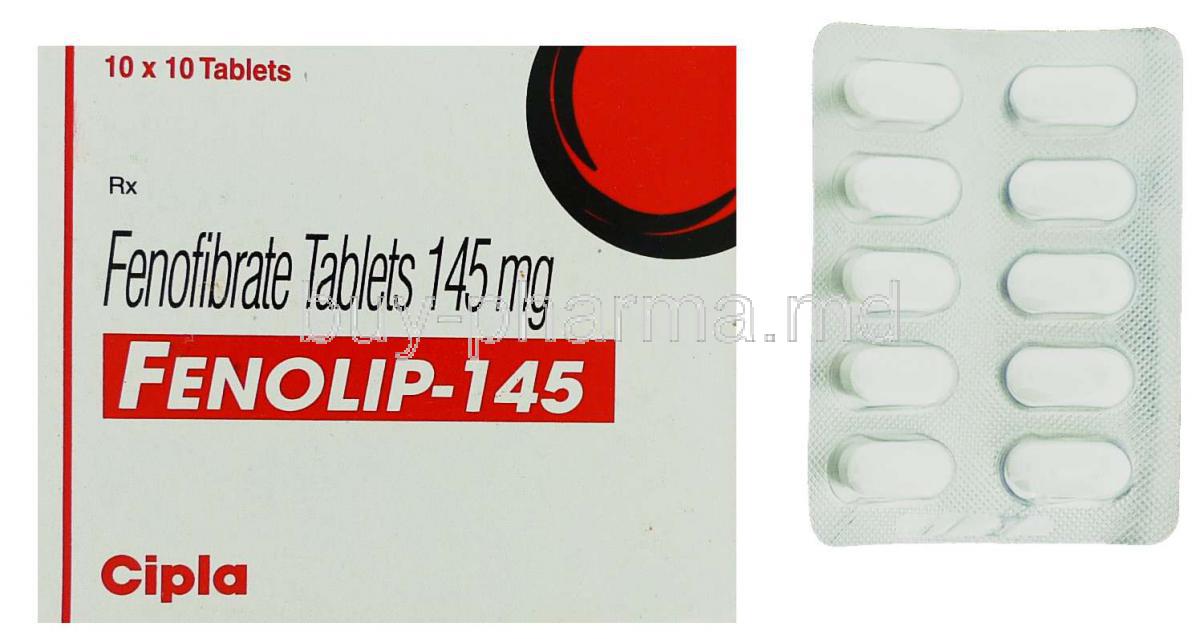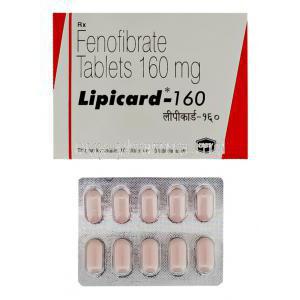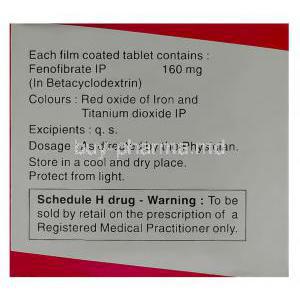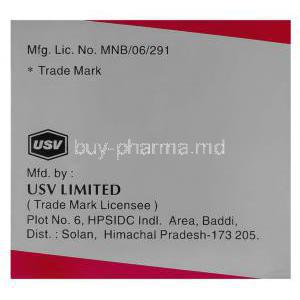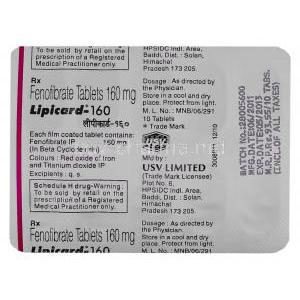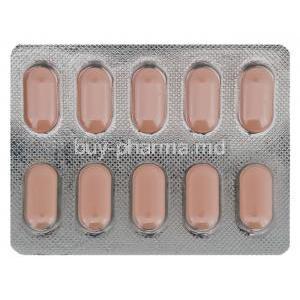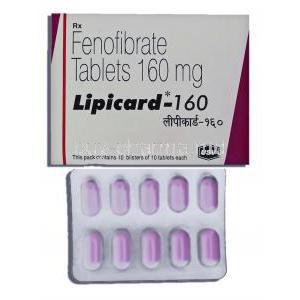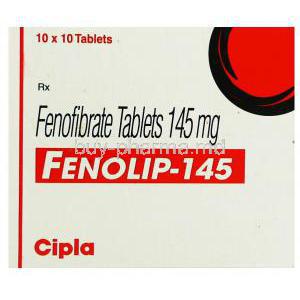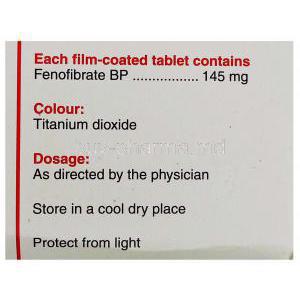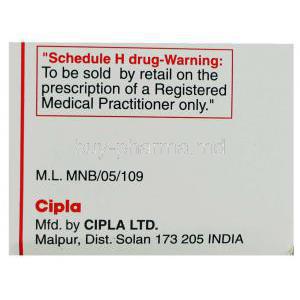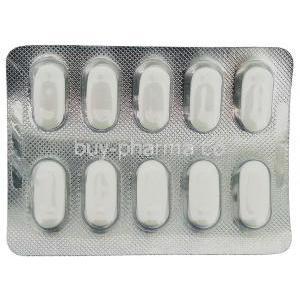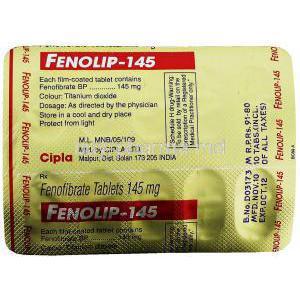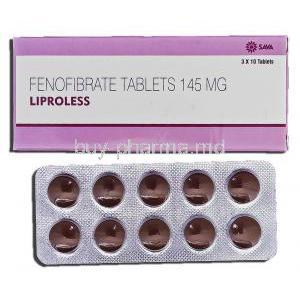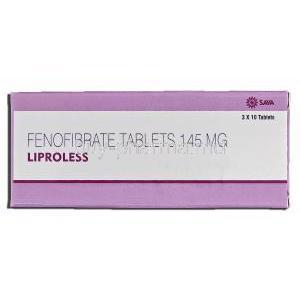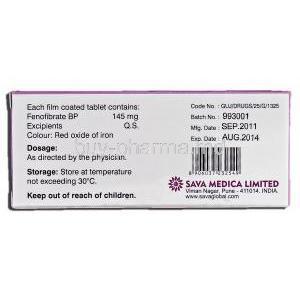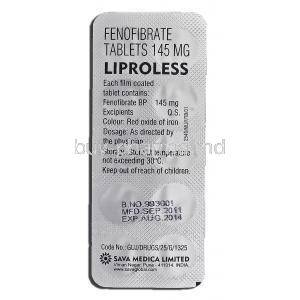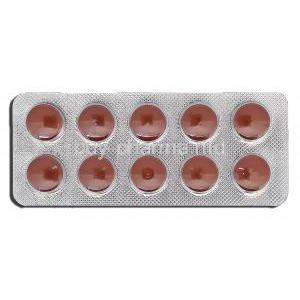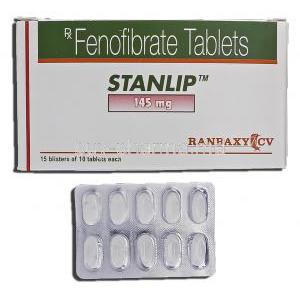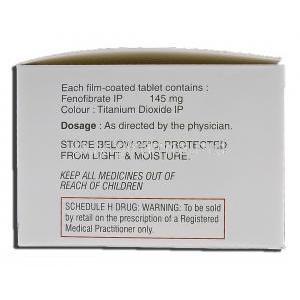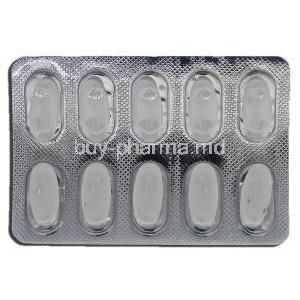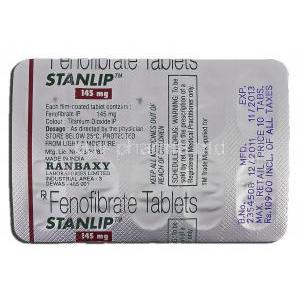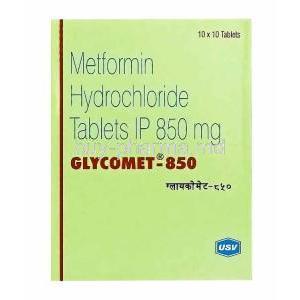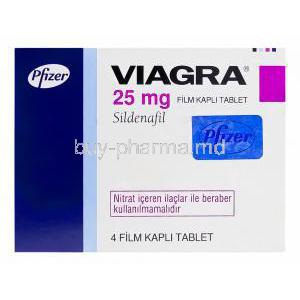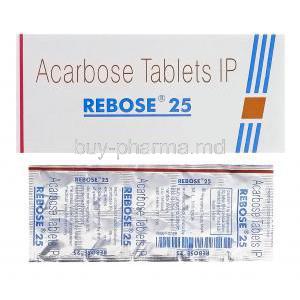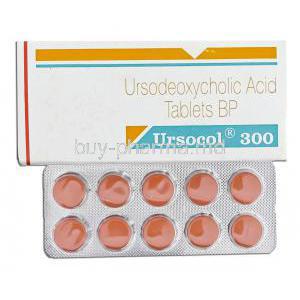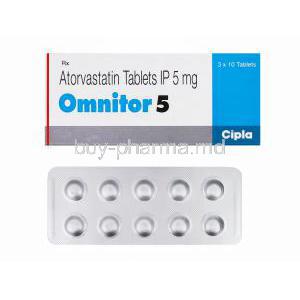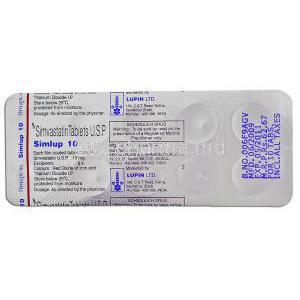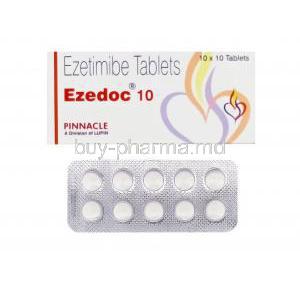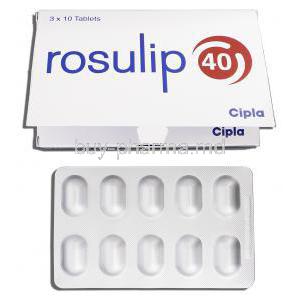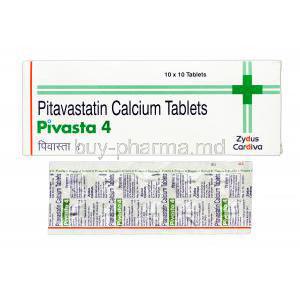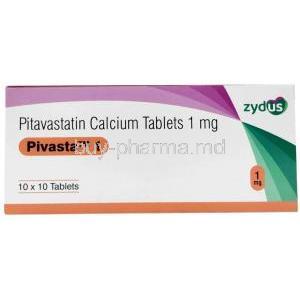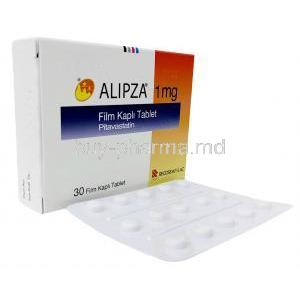Fenofibrate
- I. Introduction
- II. Composition of Fenofibrate
- III. How Fenofibrate Works
- IV. Uses of Fenofibrate
- V. Dosage and Administration
- VI. Side Effects of Fenofibrate
- VII. Interactions of Fenofibrate
- VIII. Warnings and Contraindications
- IX. Overdose of Fenofibrate
- X. Storage and Handling Precactions
- XI. Careful Administration of Fenofibrate
I. Introduction
A. Brief Overview of Fenofibrate
Elevated cholesterol and triglyceride levels have presented various challenges for patients. But thanks to fenofibrate – an effective lipid-modifying agent – significant improvements have been observed in their well-being. Integrating this medication into the medical sphere has played a crucial role in combating lipid-related disorders. Fenofibrates' primary objective is reducing elevated cholesterol and triglyceride levels, recognized as paramount risk factors for cardiovascular diseases.
B. History and Development of Fenofibrate
Fenofibrate was created in the 1970s by Laboratoires Fournier of Dijon, France, and was later introduced into the market as "Tricor." This medication belongs to a category known as fibrates and was specifically developed to address lipid abnormalities, which have been identified as a significant public health concern. Over the years, numerous clinical trials and scientific studies have provided substantial evidence supporting Fenofibrate's effectiveness and safety.
II. Composition of Fenofibrate
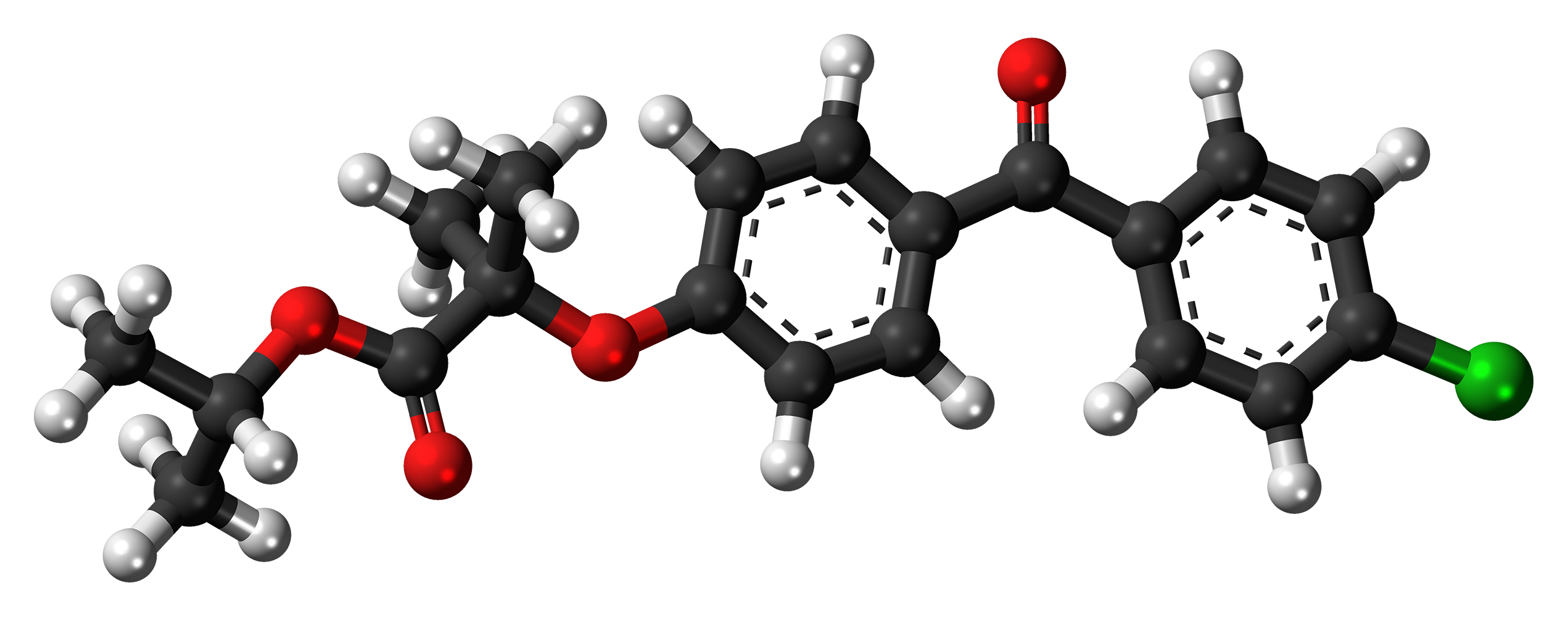
A. Active Ingredients
Fenofibrate contains Fenofibric acid, which is its primary active ingredient. This powerful compound effectively boosts lipoprotein lipase, an enzyme responsible for breaking down fats in the blood. Fenofibric acid helps decrease harmful cholesterol and triglyceride levels while increasing the beneficial cholesterol levels in the bloodstream.
B. Inactive Ingredients
In addition to the active ingredient. Fenofibrate contains various inactive ingredients. Some of these include microcrystalline cellulose, lactose, croscarmellose sodium, and magnesium stearate. While these compounds may not be directly involved in the drug's therapeutic effect, they still have essential functions for instance. They aid in the absorption of the drug contribute to its bulk and help maintain its stability.
III. How Fenofibrate Works
A. Understanding Cholesterol and Triglycerides
Cholesterol, a waxy substance present in the bloodstream, and triglycerides, a type of fat, play a vital role in ensuring the proper functioning of our bodies. Nevertheless, when their levels exceed normal thresholds, they can harden and narrow arteries, thereby elevating the likelihood of experiencing stroke, heart disease, and other cardiovascular ailments.
B. The Role of Fenofibrate in Lipid Management
Fenofibrate is recognized as a powerful tool in controlling lipids. It effectively lowers elevated levels of low-density lipoprotein (LDL, commonly known as "bad" cholesterol) and triglycerides. While simultaneously increasing the levels of high-density lipoprotein (HDL. Often referred to as "good" cholesterol). The remarkable capacity of Fenofibrate to modify lipids positions it at the forefront of preventive cardiovascular treatment.
C. Mechanism of Action of Fenofibrate
Fenofibrates' mechanism is both fascinating and noteworthy as it involves activating a cell receptor called peroxisome proliferator-activated receptor alpha (PPARα). This specific receptor has a significant influence over lipid synthesis and degradation within our bodies, through its activation by Fenofibrate. PPARα heightens metabolic rates while aiding in removing triglyceride-rich particles from plasma—effectively reducing overall triglyceride levels. Moreover, this process fosters HDL production, which bolsters our lipid balance and ultimately supports cardiovascular well-being.
IV. Uses of Fenofibrate
A. FDA-approved Indications
In acknowledgment from the U.S. Food and Drug Administration (FDA), it has been recognized that Fenofibrate holds beneficial impacts for specific medical conditions(FDA, 2011). For instance, hypercholesterolemia is characterized by abnormally high blood cholesterol levels (Burgess et al., 2009). By effectively decreasing low-density lipoprotein (LDL)—commonly called 'bad' cholesterol—and increasing high-density lipoprotein (HDL)—referred to as 'good' cholesterol—Fenofibrate has proven effective at managing this condition(Hatzitolios et al., 2014). Another medical complication in which Fenofibrate reveals efficacy is hypertriglyceridemia, an excess of body triglycerides—a type of fat—(Miller et al., 2008). By diminishing these levels, Fenofibrate minimizes the likelihood of developing further health issues such as pancreatitis(Christian and Behari, 2011). Lastly, Fenofibrate provides patients with mixed dyslipidemia—ailments involving simultaneously elevated cholesterol and triglyceride levels—with a holistic treatment option that adequately addresses both lipid abnormalities(Staels and Dallongeville, 2014).
B. Off-label Uses of Fenofibrate
In addition to its approved uses, Fenofibrate is sometimes used off-label for specific health conditions. One such condition is Diabetic Retinopathy, which affects the eyes, specifically the retina. Recent studies have shown Fenofibrate's potential benefits in slowing down this condition's progression(Wong et al., 2015). Another condition that can be managed with Fenofibrate is Nonalcoholic Fatty Liver Disease (NAFLD), where excess fat accumulates in the liver cells of individuals who consume little or no alcohol. Fenofibrate is believed to decrease liver fat levels and reduce inflammation associated with NAFLD(Basaranoglu et al., 2010). It is essential to note, however, these off-label uses are supported by limited evidence and should always be pursued under medical supervision(Abdelmoneim et al., 2017).
V. Dosage and Administration
A. Recommended Dosage for Various Conditions
The appropriate dose of Fenofibrate depends on the particular medical condition. In cases of high cholesterol and high triglyceride levels, it is generally advised to start with a daily dose of 145 mg. However. For mixed dyslipidemia. The dosage might be modified based on individual lipid profiles and response to treatment. It is crucial to adhere to your doctors' instructions and refrain from changing the dosage without seeking medical advice.
B. Dosage Adjustment for Specific Populations
Dosage adjustments may be necessary for different population groups. When it comes to the elderly, their reduced kidney function calls for careful dose adjustment. The doctor will determine the precise dosage based on kidney function tests. As for children, fenofibrate should only be administered if prescribed by a healthcare professional. The dosage will be determined based on the child's weight and medical condition for pregnant women and nursing mothers. The use of fenofibrate during pregnancy should only occur if the potential benefit outweighs the potential risk to the fetus. Caution should also be exercised when administering fenofibrate to a nursing woman, as it is unclear if it passes into breast milk.
VI. Side Effects of Fenofibrate
A. Common Side Effects
Although Fenofibrate is generally well tolerated. There are instances when it can lead to some side effects. Gastrointestinal symptoms like nausea, vomiting, stomach pain, and diarrhea may occur. However, taking Fenofibrate with a meal can help reduce these effects. Additionally, dermatological symptoms like rash or hives may be experienced by certain patients if these symptoms persist or worsen. It is advisable to seek medical attention promptly.
B. Less Common Side Effects
Occasionally certain patients may encounter more severe side effects. One example of this is hepatic side effects, which can manifest as alterations in liver enzymes or discoloration of the skin or eyes, known as jaundice. To keep track of these possible effects. Regular liver function tests are recommended. Another possibility is respiratory side effects, such as developing a cough or experiencing difficulty breathing. It is crucial to seek immediate medical attention if these symptoms arise.
C. Management of Side Effects
Adjusting the dosage or considering alternative medications can often help deal with side effects. A diligent step would be promptly notifying a healthcare professional about any unusual or bothersome side effects. Always remember that it's crucial not to discontinue taking the medication without consulting your healthcare provider. As doing so could potentially worsen your underlying condition.
VII. Interactions of Fenofibrate
A. Drug-Drug Interactions
It is important to note that fenofibrate can interact with other medications, which could affect how well they work or lead to more side effects. Specifically, there may be interactions with blood thinners like warfarin and other cholesterol medications such as statins. And immunosuppressants like cyclosporine. Due to this, you must inform your healthcare provider about all the medicines you are currently taking, including over-the-counter drugs and dietary supplements.
B. Drug-Food Interactions
Although Fenofibrate has no significant food interactions, consuming the medication with a meal is advisable to improve its absorption and decrease the chances of experiencing gastrointestinal side effects. Additionally, it is recommended to maintain a balanced diet that is low in saturated fat and cholesterol, as this will help enhance the drugs' ability to manage lipid levels effectively.
C. Effects of Other Health Conditions on Fenofibrate Interaction
How underlying health conditions can also impact Fenofibrate functions. Notably, individuals with liver disease, gallbladder disease, kidney disease, or a previous occurrence of pancreatitis may necessitate dose adjustments or should refrain from using Fenofibrate entirely. Consequently, having a comprehensive discussion regarding your medical history with your healthcare provider before initiating therapy is imperative.
VIII. Warnings and Contraindications

A. Contraindications for Fenofibrate Use
Patients with a known hypersensitivity to fenofibrate or its components and those with liver disease, gallbladder disease, or severe kidney disease should not take this medication. Moreover, nursing mothers should also avoid using fenofibrate due to its potential risk to their infants.
B. Warnings and Precautions
To ensure patient safety during long-term treatment with Fenofibrate, it is imperative to monitor liver and renal function regularly. This will help identify any potential damage to these vital organs caused by the medication. Patients with a history of gallbladder disease should receive close monitoring due to the increased risk of developing gallstones associated with Fenofibrate use. Moreover, individuals who have previously suffered from pancreatitis should exercise caution as they might experience a recurrence while on this medication. Lastly, patients must be vigilant and report any unexplained muscle pain, tenderness, or weakness immediately since these could be signs of muscle problems caused by Fenofibrate.
IX. Overdose of Fenofibrate
A. Symptoms of Overdose
Overdosing on Fenofibrate can result in numerous adverse effects, which can vary in severity. These may include mild to severe symptoms such as abdominal pain, nausea, vomiting, diarrhea, and lethargy, in more severe overdose cases complications like liver damage and muscle breakdown can arise. The symptoms of these complications may present as jaundice (yellowing of the skin and eyes) and muscle pain or weakness.
B. Management of Fenofibrate Overdose
When a suspected overdose occurs, it is crucial to seek immediate medical attention due to the possible severe complications. The primary approach for treatment is providing support and addressing the symptoms. It is important to note that dialysis is not an effective treatment option for overdoses involving Fenofibrate since it does not significantly impact its elimination.
X. Storage and Handling Precactions
A. Recommended Storage Conditions
To maintain the efficacy of Fenofibrate, it is recommended to store it at room temperature, away from light and moisture. It is advisable to avoid storing it in the bathroom or areas with high heat levels. Moreover, it is crucial to keep medications out of the reach of children and pets at all times to prevent unintentional ingestion.
B. Safe Handling of Fenofibrate
Please handle Fenofibrate with clean and dry hands at all times. It is essential to refrain from crushing or chewing the tablets. Instead, please swallow the tablet whole with a full glass of water if you miss a dose. Please take it as soon as you remember unless it is close to the time for your next scheduled dose. Remember, it is never advisable to double up on doses to compensate for a missed one.
XI. Careful Administration of Fenofibrate
A. Monitoring Parameters during Treatment
Thorough monitoring is essential throughout Fenofibrate therapy to optimize its effectiveness. Undertaking regular blood tests that assess cholesterol and triglyceride levels alongside evaluating liver and kidney function empowers healthcare professionals with valuable insights into how well the medication works for you. This enables them to make any necessary modifications within your treatment plan, ensuring that you receive optimal care.
B. Importance of Regular Follow-up Appointments
It is essential to attend regular follow-up appointments with your healthcare provider. These appointments allow them to monitor how well Fenofibrate is working for you. Moreover, this is the perfect chance for you to address any concerns or questions about the medication or its side effects. Your healthcare provider can detect and manage complications early on by attending these appointments. Therefore you must keep these appointments and maintain open communication with your healthcare provider throughout your treatment journey.

